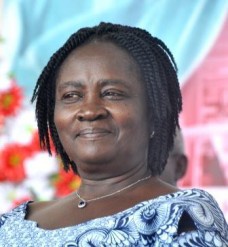
Prof Jane Naana Opoku-Agyemang, the Education Minister, said it was not true that about 70 per cent of the 2014 West Africa Senior School Certificate Examination (WASSCE) candidates failed.
She said in 2013, the Ministry presented over 460,000 candidates from the four-year and three-year programmes of which 78,000 representing 19 per cent passed in six subjects.
She said this year, out of 242, 162 candidates from the three- year programme, 68,062 representing 28.11 per cent passed in six subjects including mathematics and English and have qualified for tertiary admissions.
Prof Opoku-Agyemang said this in Accra at a stakeholders’ forum organized by the National Council on Tertiary Education on the establishment of the University of Environment and Sustainable Development (UESD).
The forum was to enable stakeholders discuss the UESD draft report and make recommendations towards the formulation of a bill to be placed before Parliament soon.
She said it had never happened anywhere that 70 per cent of candidates presented for a national examination failed and added “our students are brighter than that”.
The Minister said about 3.07 per cent of the 2014 candidates failed their entire results, but these included students who failed to write their papers and those whose result had been withheld by the West African Examination Council (WAEC).
She said the 3.07 per cent was still on the high side and that it was only after WAEC has disaggregated those who did not sit for the exams that the final percentage could be known.
“So please 70 per cent of the students have not failed, let us not put this negative report into the minds of our young people. Let us wait patiently for the analysis of the result to be put out by WAEC. I don’t think certain percentages may necessarily change drastically, but I am hopeful that the 3.07 per cent would decline,” she said.
Prof Opoku-Agyemang said aside the six passes; candidates with various passes could pursue further studies at the technical and vocational institutions.
She said government’s policy of 60 per cent to 40 per cent admission quota for the humanities and the sciences at the tertiary level was still below the target for the sciences, which according to the Minister could be traced back to the basic school level.
To address the problem the Ministry, she said, this year organized a training programme for 500 teachers from junior high and senior high schools with poor records in mathematics and science, in order to help improve the performance of the students in subsequent years.
The Minister said it was important that stakeholders of the UESD took into account the calibre of students they would be admitting.
She said the training programme for teachers in mathematics and science would go a long way to benefit the university.
Prof Opoku-Agyemang said the Ministry was implementing the policy of teaching children in their mother tongue at the pre-school and the lower primary levels.
Dr Christiana Amoako-Nuama, Convener of the Committee responsible for the establishment of the UESD, said academic works would begin in the new university in the 2015/2016 academic year.
The UESD, with a mission to generate and disseminate timely science-based knowledge and policies to promote sustainable national development through high quality education and research, will be having its headquarters at Somanya with a Campus at Donkorkrom in the Eastern Region.
The University will initially have the following faculties: Natural and Environmental Sciences, Agribusiness and Economics, Sustainable Development, and the Built Environment.